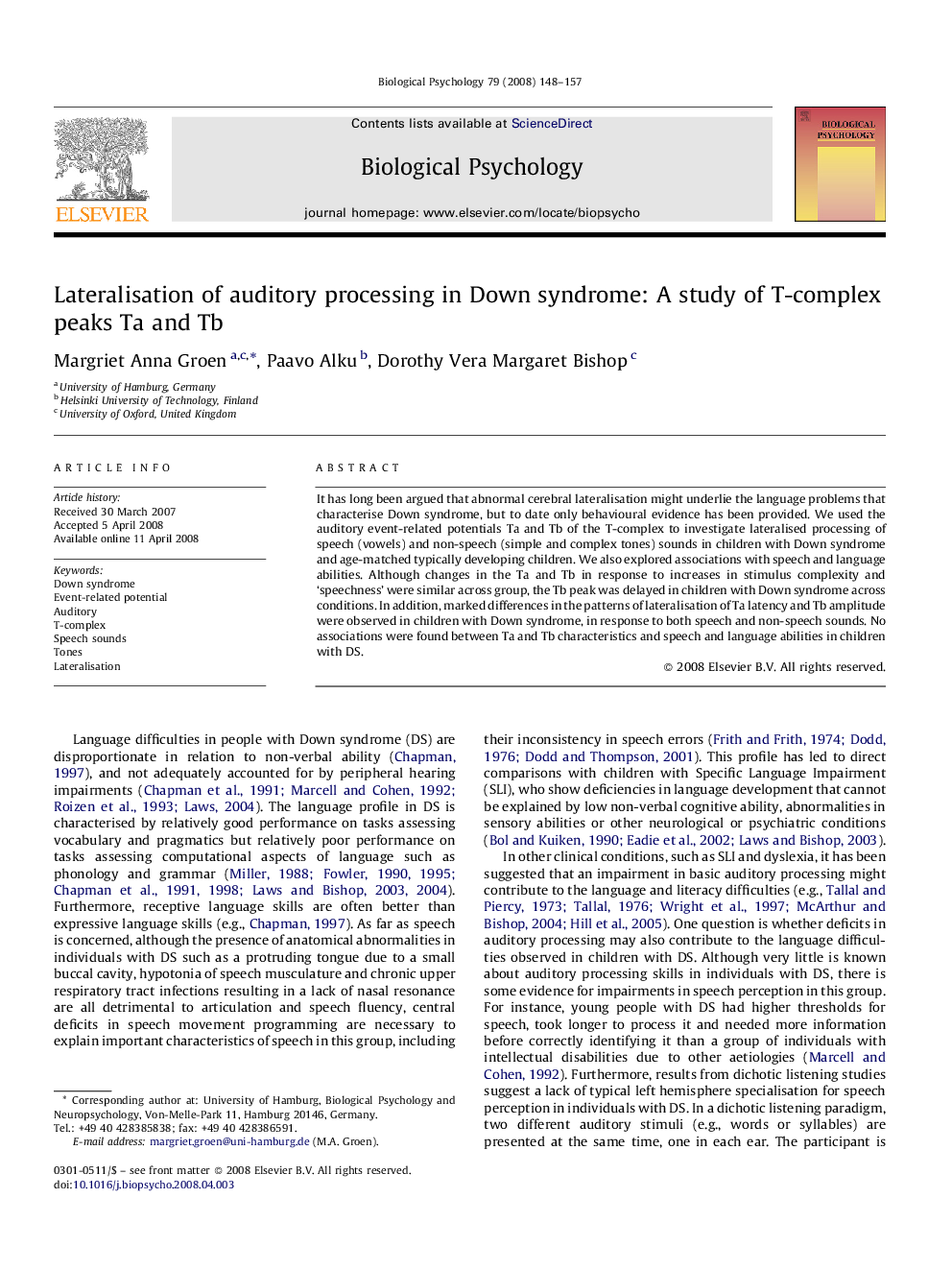| Article ID | Journal | Published Year | Pages | File Type |
|---|---|---|---|---|
| 10454422 | Biological Psychology | 2008 | 10 Pages |
Abstract
It has long been argued that abnormal cerebral lateralisation might underlie the language problems that characterise Down syndrome, but to date only behavioural evidence has been provided. We used the auditory event-related potentials Ta and Tb of the T-complex to investigate lateralised processing of speech (vowels) and non-speech (simple and complex tones) sounds in children with Down syndrome and age-matched typically developing children. We also explored associations with speech and language abilities. Although changes in the Ta and Tb in response to increases in stimulus complexity and 'speechness' were similar across group, the Tb peak was delayed in children with Down syndrome across conditions. In addition, marked differences in the patterns of lateralisation of Ta latency and Tb amplitude were observed in children with Down syndrome, in response to both speech and non-speech sounds. No associations were found between Ta and Tb characteristics and speech and language abilities in children with DS.
Related Topics
Life Sciences
Neuroscience
Behavioral Neuroscience
Authors
Margriet Anna Groen, Paavo Alku, Dorothy Vera Margaret Bishop,
